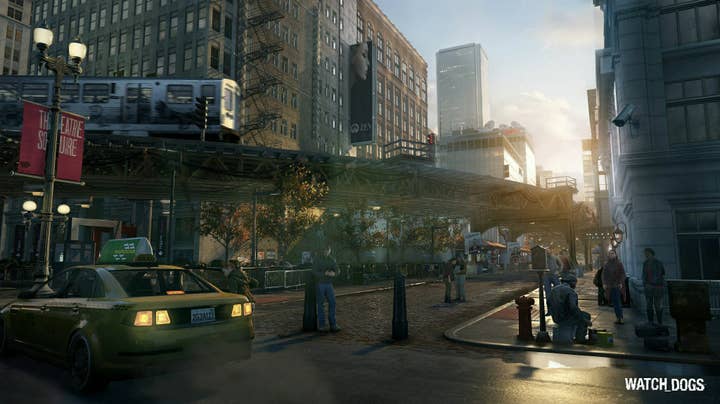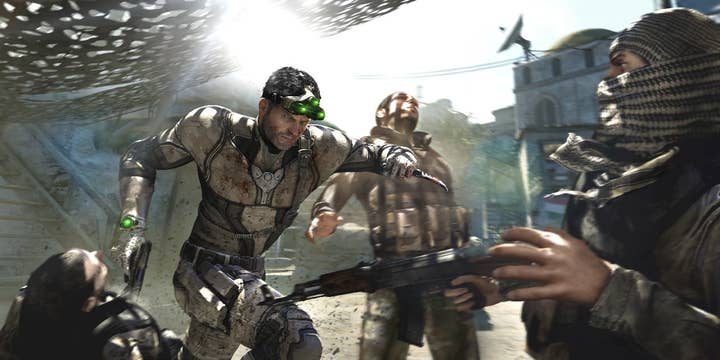The Kids are Alright - Jade Raymond on a Ubisoft future
We talk to the boss of Ubi Toronto about youth, indies and Sam Fisher
Like a well-versed marathon runner, Ubisoft seems to have timed a break for the front of the pack almost perfectly. The publisher impressed across the board last year with a slew of tentpole AAA releases and smaller titles that hit all the right critical notes, putting it in a very strong position for publisher of the year as it's major competitors faltered or took aim at new demographics.
With the end of a console cycle coming, and an installment of a popular franchise in the form of Splinter Cell: Blacklist to slot in before it does, Jade Raymond's job as the managing director of Ubisoft Toronto blends great pressure with great privilege. GamesIndustry International caught up with her at GDC last week for a general chat about her role, the company's current goals, and what the industry needs to do to move forward.
It's a good question. I think to some extent, and I talked about this to some extent last year, that we're underestimating our audience. I think that as game creators are ageing and having kids, there's this feeling that okay, maybe the themes that are predominant in games no longer resonate with us, but we're no longer the target market. What the kids want to see are vapid, action-packed kind of games, so that's what we're going to give them.
"I think in some games there's a kind of machismo that's embedded in the franchise or the tone of the game and there's an assumption that that's what kids want to see"
I think in some games there's a kind of machismo that's embedded in the franchise or the tone of the game and there's an assumption that that's what kids want to see. I think that we're really wrong in that - I think we're really missing the mark. Talking to younger people, there is a difference in attitude: they care more about what's going on in the world and doing the right thing. I think that's why you see more corporations trying to be more involved, having corporate responsibility for their environmental footprint or their community.
The younger generation care about what corporations are doing generally, they're getting more actively involved in policy and politics. They also, I think, are looking for more meaning in their games and entertainment. I think that we need to challenge our assumptions about the new generations and what they're looking for.

Well I think that responsibility falls in all the camps. I think for indies you can say, it's easier for them because the budgets are so small that there's less risk - but indies also don't really have the money to foot the bill if those risks don't pay off. They're just as much trying to make a game that pays the rent. So I think big publishers need to take responsibility. I think you can have a greater impact and deliver much more subtle layers of experience when you do have that sort of AAA blockbuster.
I think if you wanted to have a game that puts you in the shoes of a different type of main character, an atypical one: a game where you get to be an elderly person, for example. Something where you get to experience what it's like to have trouble walking to the bus station or something. You don't want a whole game around that, but if you did want to capture that, or let people live through different types of experiences, then I think the best way to do that is in a high-def game.
I think that's one thing that's really exciting about the next generation of consoles: that those finer experiences which need a bit more subtlety to capture are going to be possible with new tech.
"I think there is a general belief that games with female characters won't sell as well"
I think there is a general belief that games with female characters won't sell as well. I think that question was asked of Mirror's Edge, for example. The counter-example is Tomb Raider. As a female gamer, I love to be able to play as a female character. I prefer it when there's the choice of multiple characters, male and female.
There is a broadly-held belief, though, that if you only offer a female character then you won't sell as well, because guys just don't want to have to play as a female.
Yeah, it's great. One thing that's really interesting about Toronto is that it's really hot indie gaming: there's lots of support for indies in the city. The same kinds of subsidies that Ubisoft gets are available to any studio. If you're an indie developer, you get the same kinds of tax credits and support for your R&D efforts. So that means that there are tons of indies, a really thriving scene.
It's interesting because we are in a different business, but we can still inspire each other. We were talking a little about things like the IGDA before we started - when you go to those meetings in Toronto you really get exciting conversations because we really learn from each other, someone's also trying something new.

The question is, where is the tech? We're actually doing some really interesting stuff at Ubisoft with Just Dance - I think that's a good example of a great implementation. You don't feel frustrated, you really feel like it's doing a great job of tracking your movements. For that type of game, it's great. I am excited to see what further advancements we're going to get, because I would love to have more games motion controlled. Real gamer games, things like fighting games.
I don't think we've seen the right level of tech yet, but if you could have something like an old Streets of Rage thing, where you're there with your buddy, going along - it wouldn't have to be a side-scroller - but that kind of game I think you could do with motion control. We're not there yet, but I love thinking about those sorts of things. What's great is that Ubisoft Toronto is going to get to work on two new IPs, so we have the possibility to be thinking about those sort of things.
Not yet. We're shipping Blacklist now, so there's plenty of excitement to keep us engaged on that.
It's really exciting to me! I really think that with Blacklist we're also going to surprise - we're really doing some exciting things. Even though we're coming out at the end of a console cycle, I really believe that we're going to surprise people with some innovation. It's nice to see that a lot of these franchises are now getting the chances that Assassin's Creed did, with AC1, we didn't really get the chance to fully realise our vision, but then we did with the second one.
Now we're seeing the same thing with Far Cry. With Far Cry one and two, there were a lot of emerging systems, but it was about getting the wrapping right - fitting it into a digestible form for gamers. I'm really proud that we got to do that. Playing that game as a gamer, I was really proud to be working at Ubisoft - and I'm really proud that we get to do that again with Blacklist.
"Even though we're coming out at the end of a console cycle, I really believe that we're going to surprise people with some innovation"
I think with Blacklist we're going to be able to get to the core of what Max and Alex started to do with Conviction and really stretch it out to include all of the breadth they wanted. To me it's really exciting that some of our ideas at Ubisoft, on many different brands, are getting to the levels that they are. That gives us the flexibility, when we're doing well on the sales front, to take more chances. When you take a chance commercially, it might not pay off on the first try, but if you continue to invest in it, and have confidence in the team, then you will get a hit when you take risks.
It's nice to know that Ubisoft continues to be willing to do that and that it pays off in the end.
We have two major engines at Ubisoft, so Assassin's is on a completely different engine to Far Cry. They have different strengths and weaknesses. I do think that there are certain things in the industry as a whole that people are coming to expect; that kind of fluid movement which we pushed in Assassin's is something that you're starting to see in many games, whether they're Ubisoft or not. It can feel a bit antiquated if you have to stop and press B to climb a crate or something.
That's something we spent a lot of time implementing in Blacklist - that fluidity of motion. I think it's expected. Also, in a multiplayer experience, it's really important. When you're playing multiplayer you need to be able to think "ok, that's my target or objective, how do I get there," because it's really fast and you don't have time to stop and struggle with controls. So I think if you have 3D navigation, you really have to make it fluid.
So I think some of those similarities aren't necessarily driven by shared tech, they're driven by player expectations and what makes a better experience.

